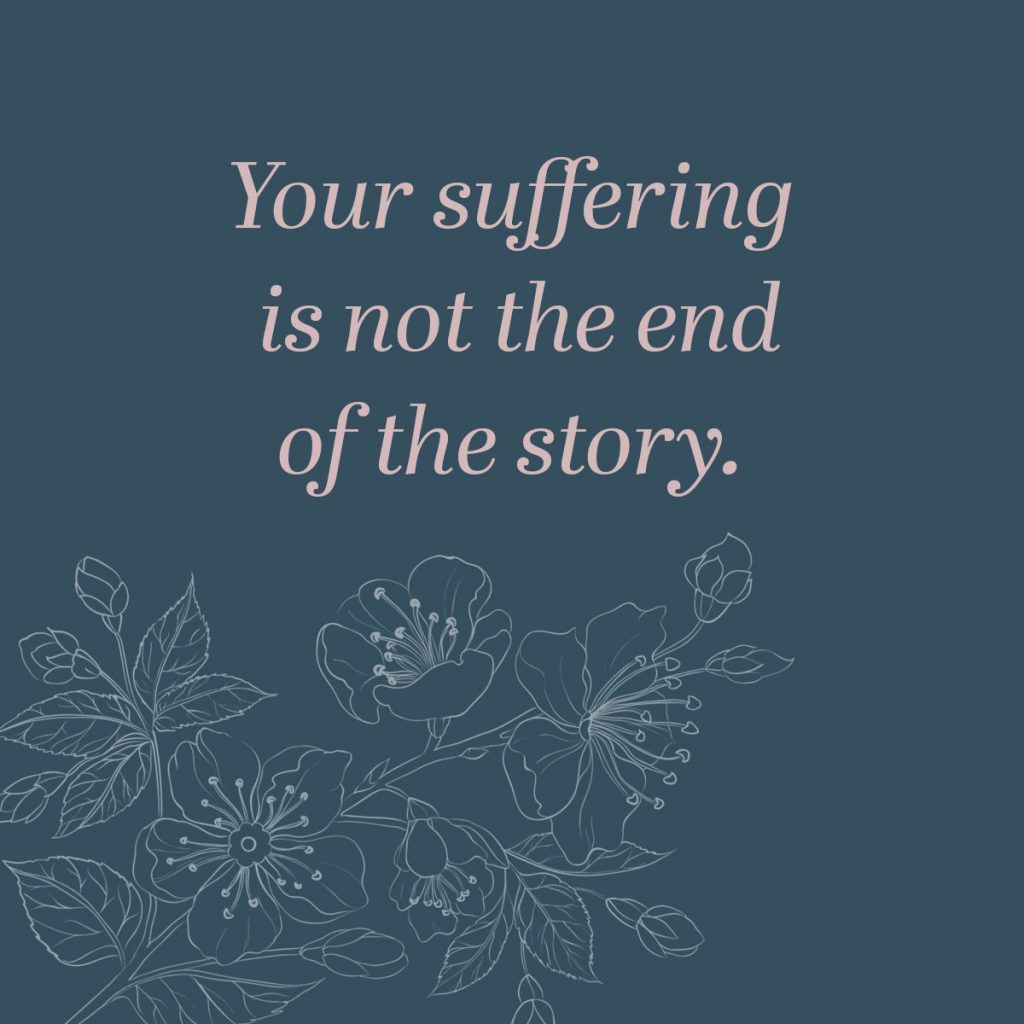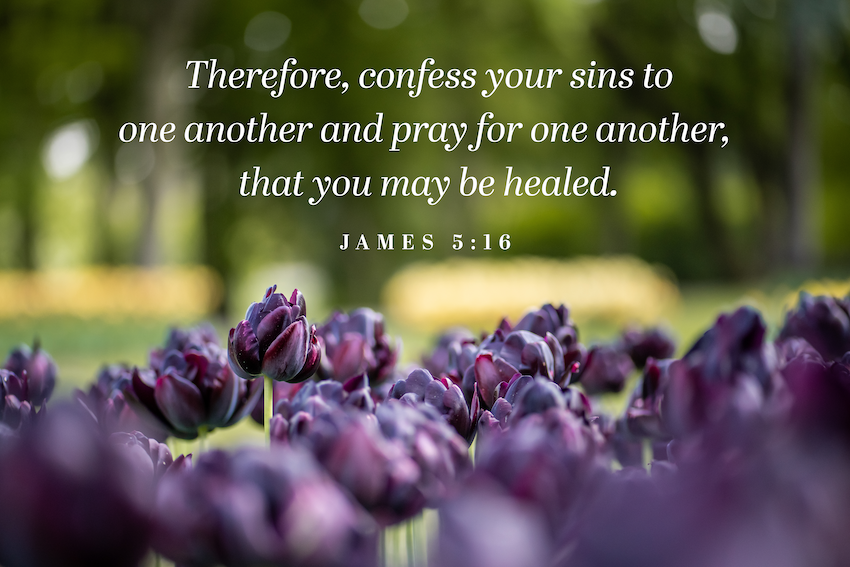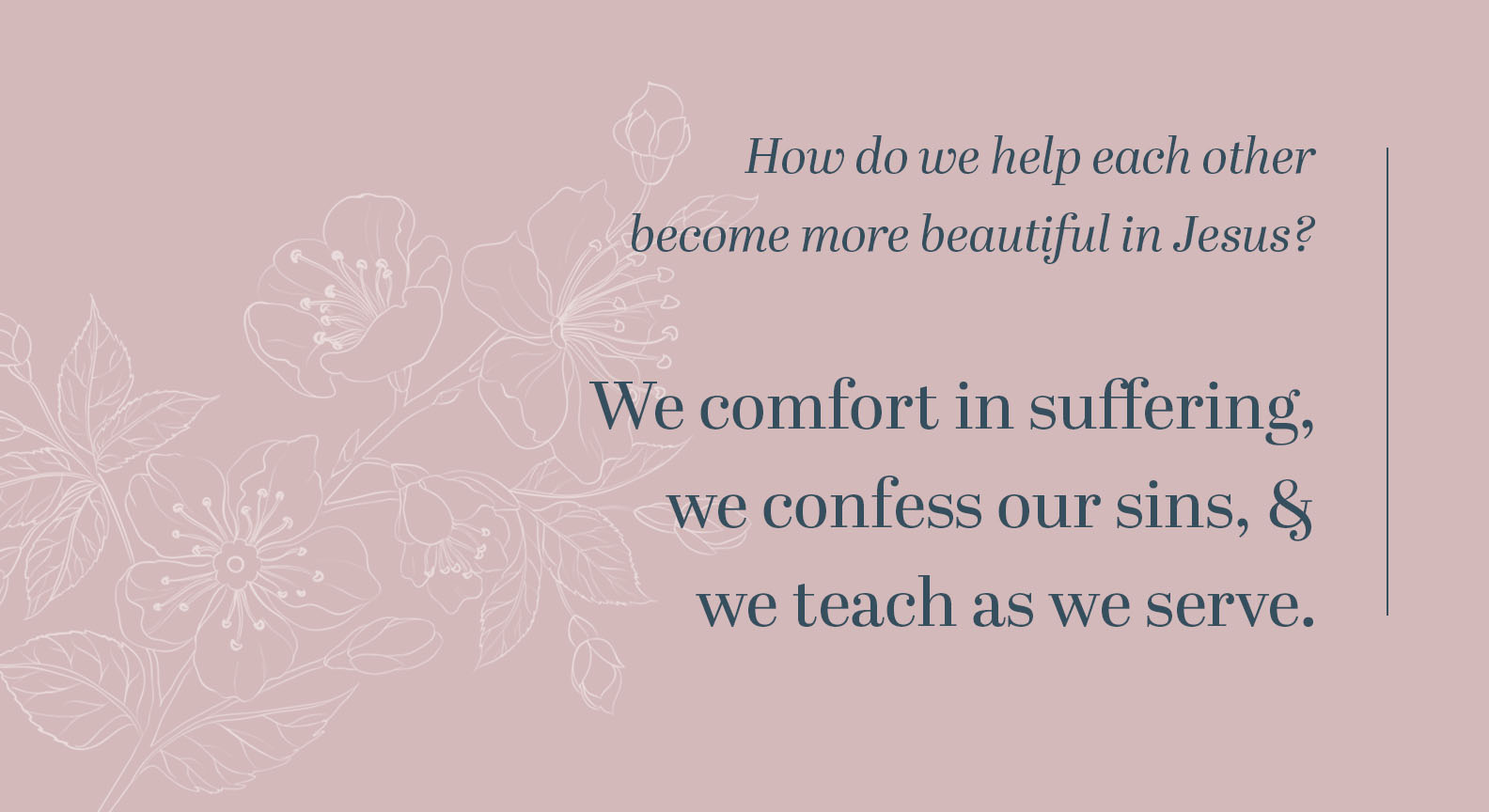Three Ways We Can Blossom Together
“Bearing fruit in every good work, growing in the knowledge of God.”
Colossians 1:10
That’s our goal as Christians, yes? We want the truth of the gospel that God has put into our hearts to grow up into something beautiful. We want to know Him more so we can look more and more like Jesus. We want His Word and His Spirit to change our hearts, so we can be more and more beautiful.
We want the beauty of our lives to point each other to the beauty of Jesus! But how?
Here are three ways we can point each other to Jesus:
1. In our suffering, we can comfort.
I’ve lost track of how many funerals I’ve been to. Between the ages of nine and eighteen, I went to the funerals of five of my grandparents and a great aunt. It was a difficult season for my family, to say the least.
In each situation, the pain was acute. I watched my parents weeping. I helped as I could by sorting through possessions and watching younger siblings during hospital visits. I grieved at holidays when we remembered that the person who held up a tradition was no longer with us. Each person who died, even the ones with whom we had rocky relationships, left an unfillable hole.
You have grief, too. We all do. But God can use that grief.
In high school, after many of the funerals, two of my best friends lost grandparents very suddenly. I happened to be reading 2 Corinthians at the time and ran across these verses:
“Blessed be the God and Father of our Lord Jesus Christ, the Father of mercies and God of all comfort, who comforts us in all our affliction, so that we may be able to comfort those who are in any affliction, with the comfort with which we ourselves are comforted by God.”
2 Corinthians 1:3–4
 I learned that all the losses had a purpose—so I could be there to comfort my friends. God has helped me as a young adult to continue doing that. He has given me comfort to give others. That’s His goodness! Suffering you experience is an opportunity to run to the Father and be comforted. And others’ suffering is an opportunity to share God’s comfort. Your suffering is a commission. Because you’ve suffered, you’re a messenger of hope and comfort to a world without hope and full of false comforts.
I learned that all the losses had a purpose—so I could be there to comfort my friends. God has helped me as a young adult to continue doing that. He has given me comfort to give others. That’s His goodness! Suffering you experience is an opportunity to run to the Father and be comforted. And others’ suffering is an opportunity to share God’s comfort. Your suffering is a commission. Because you’ve suffered, you’re a messenger of hope and comfort to a world without hope and full of false comforts.
God comforts you; you comfort others.
Look around—there may be someone in our church or your neighborhood that would benefit from the comfort you experienced in your own suffering. Your suffering is not the end of the story. God is in the business of exchanging our sorrows for joy and making our suffering into a beautiful garden of His grace.
2. When we sin, we can confess.
One of my best purchases ever was a weighted blanket.
I bought it to help with my anxiety, and I keep it on my bed, where it does what it’s designed to do: provide a sense of safety and security in the evening hours.
Now imagine if I got so attached to that blanket that I carried it around everywhere. I’d probably lose a few pounds with the effort (it’s heavy!), but it would keep me from moving freely. Every step would be a burden. I’d stop doing some of my favorite things. Playing the piano is pretty impossible if you can’t raise your arms. Hugging my loved ones, cooking, and even getting a book off the shelf would become a burden.
Likely, I’d stop being as social, out of love for the blanket. People in my life would get pushed away because I’d be embarrassed by being continually wrapped up like a child and because I wouldn’t want to get worn out by the weight on me. And there are the consequences of having people close to me. Maybe someone would call me out about it. Maybe I’d have to give it up. Maybe I’d be made fun of. Nope. I’ll just stay in bed with this cozy blanket. It’s much safer.
Ridiculous, yes, but sometimes we are like this with our sin.
Here’s a hard truth: sin often makes us feel cozy.
We can believe that we’re safer holding onto it or hiding out with it than confessing to someone and admitting we need help!
Sin isn’t a weight that we’re meant to carry. We’re supposed to leave it at the cross. But sometimes, we need help to get to Him.
That’s why James told us to “confess your sins to one another and pray for one another, that you may be healed” (James 5:16).
My blanket, as great as it is, isn’t a substitute for flesh and blood people. Sometimes a hug or a shoulder to cry on is better—especially if they point me to Jesus! A blanket can’t do that! In the same way, the false refuge of hiding in our sin keeps us from the joy of being really known and cared for and prayed for.
We wrap ourselves in shame and fear; the weight of our sin keeps us from others; we keep ourselves from the healing that comes from confession. We need each other when we’re struggling with sin, which is all the time.
Sometimes that means we have to be vulnerable and put down our blankets. We have to let God wrap us in His forgiveness and the prayers of others instead. That’s the way to help each other grow.

3. Through our service, we can teach.
We all have different roles in the Body. Some of us are greeters; some serve by cleaning the church or making meals. Some of us play the piano, and some of us simply talk and listen to people. But no matter your gifting, you’re a teacher. Pastor Peter and the elders and the Sunday school teachers aren’t the only ones who teach!
Rubbing shoulders with and doing life with other believers is a great way to teach. Think about it. Who have you learned the most from? Our pastor? Your grandma who taught you recipes and simply trusting Jesus? A mentor at work? A friend who simply showed you a new way to do something?
Teaching can be knowing Hebrew and Greek, but it’s also helping a young person navigate dating. It’s putting a hand on someone’s shoulder when they’re suffering. It’s showing up with a meal and a smile to a new mom. It’s whatever we do to help others know the word of Christ—and do it!
It’s like taking a bath. You can wash yourself with a sponge and get sort of clean, or you can jump in the tub and get completely wet. Ephesians 5:26 tells us that Christ cleans and sanctifies us “by the washing of water with the word.”
There are lots of ways to get wet with the Word, but we need more than just a “sponge bath” on Sunday—though preaching is important! We need to get soaked. This means taking personal time in the Word, but it also means spending time with other believers, watching how they love their neighbors, live with wisdom, and teach their families This is a crucial way to get drenched in the Word.
As Colossians 3:16 says, “Let the word of Christ dwell in you richly, teaching and admonishing one another in all wisdom, singing psalms and hymns and spiritual songs, with thankfulness in your hearts to God.”
Whether older or younger, you have a role in teaching and learning. By simply living by faith, you are helping others become more and more like Jesus.
So how do we help each other become more beautiful in Jesus? We comfort in suffering, we confess our sins, and we teach as we serve.
A closing promise for you from Philippians 4:9: “Practice these things, and the God of peace will be with you.”

This devotional was given at our 2020 ladies’ spring gathering. The content was adapted from Hayley Mullins and Erin Davis, Living Out the One Anothers of Scripture: A 30-Day Devotional (Niles, MI: Revive Our Hearts, 2020).



